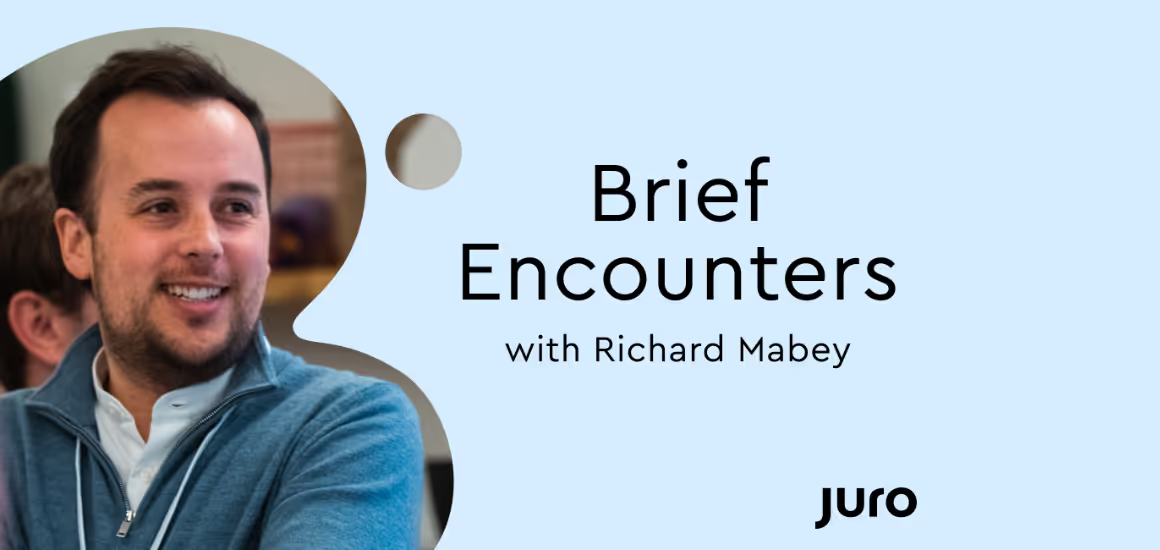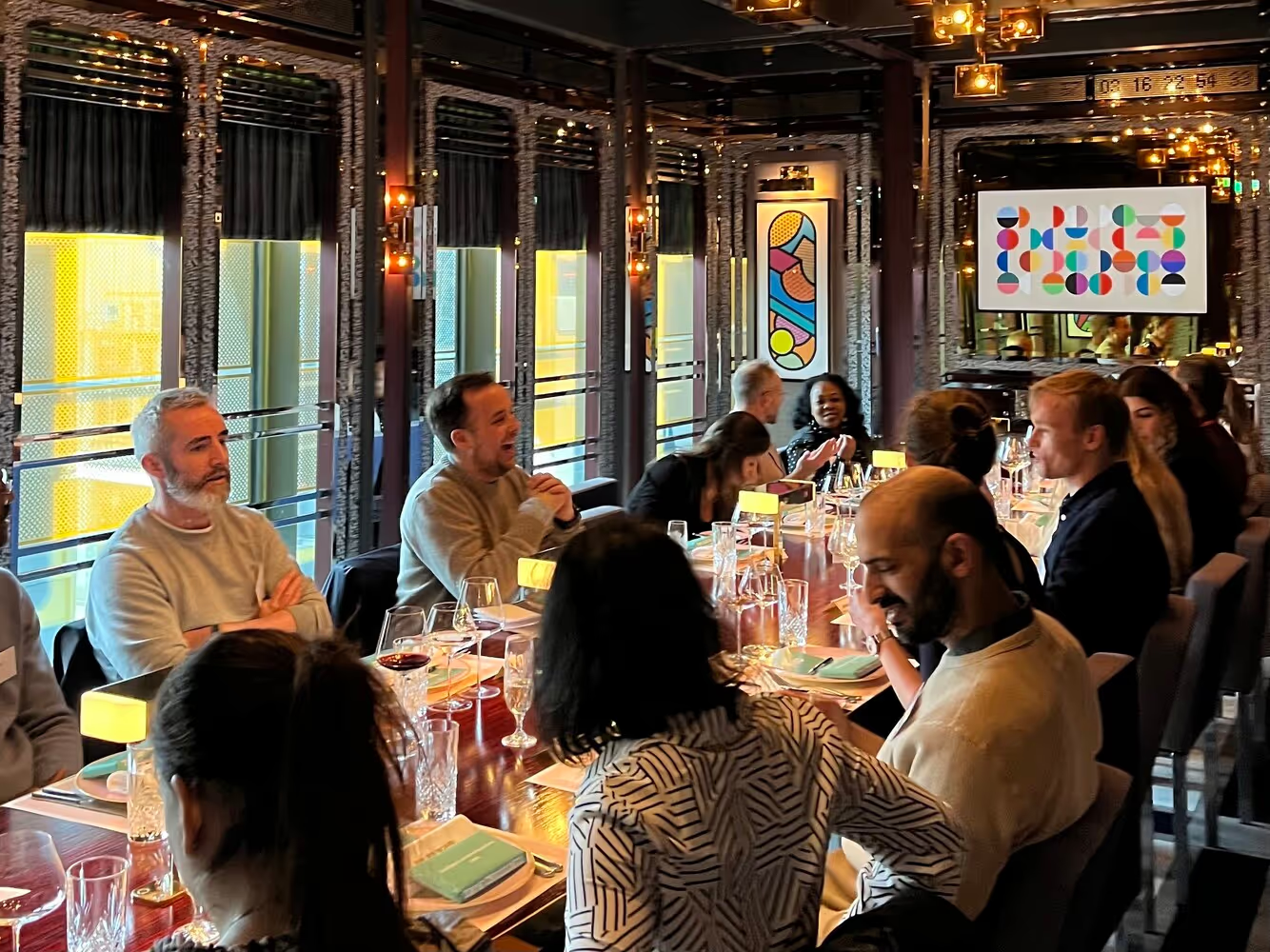Solutions
Customer Support
Resources


Legal tech is hot again. Powered (both literally and in terms of marketing) by the AI gold rush, new entrants are springing up left and right. Fundraising is back. GC’s inboxes are piping hot with outreach emails.
In many ways though, the story is the same: introduce AI, no-code workflows and smart integrations, and you’ll unlock dramatic productivity gains for your in-house team. Contracts done faster, bottlenecks removed, stakeholders happy.
The net result might be that legal teams can get twice as much work done. With agentic AI, maybe a lot more than that. Amazing for productivity. The slightly awkward question is: do they want to?
To be very clear, I’m not suggesting that in-house teams don’t want to work hard. I’m saying they already work incredibly hard.
We hosted a group of in-house lawyers for a community lunch in London this week, with the discussion topic being stress and burnout. It wasn’t hard to recruit attendees for that topic, and while of course I’ll respect the Chatham House rule under which we spoke, it’s fair to say that burnout is a live issue for many lawyers (read more here).

The pressure on lawyers - particularly sole counsel or lean teams at scaleups - is immense. You might be the only person between a sales rep and the deal that gets them to target, or between your CEO and a funding round.
But if the deal involves some crazy ask around uncapped indemnity, or the funding round is a trojan horse of legal chicanery, it’s your professional duty to hold the line.
So if the mass adoption of agentic AI really does enhance productivity for in-house lawyers, does that just raise expectations and make that pressure worse?
We all want to believe automation is the answer. But will it reduce workloads, net, or actually increase them, by raising expectations of the impact an AI-enabled individual should have?
You’ve bought some legal tech? Great, you can now do the work of 5 people
One insight from our discussion at lunch was that stress and overwork for lawyers can often come from much less exotic sources than manual processes ripe for automation.
People, then process, then technology - this was the mantra in the first couple of waves of mass cloud adoption. There’s a danger in this age of AI that we get so excited by the new technology that we skip the first two and instead use the massive leverage that AI gives us to simply entrench bad habits.
Avoiding those bad habits actually involves a lot of legal ops basics. Beyond obvious things like using the scheduling functions of Slack and email, there are some tried and tested solutions that fit in the ‘process’ bucket that we always recommend to the legal teams we work with:
All of these can help legal teams to preserve their time and - honestly - their mental health. Winning back time by adopting technology sounds great, but it’s critical to have an answer to the question of what you’ll do with that time. And what your manager expects you to do with it.
It’s a similar story on the people side of the house. Unrealistic expectations from C-suite leaders who don’t model the right behaviours can be harmful too.
If you automate with AI and get the processes right, you might still face a tyrant of a CEO (obviously I don’t know what that looks like…) modelling a culture that deliberately or inadvertently promotes working intensity and practices that burn out teams.
At our lunch this came up repeatedly. If a CEO or a CFO sends a junior team member a non-urgent message at 10pm it’s quite likely that (a) they will respond and (b) redouble their efforts to check messages out of hours. This causes an atmosphere of anxiety and contributes to burn out.
In a startup, it’s entirely possible someone might do some work on a Sunday; but that shouldn’t be celebrated like it’s the expectation of what high performance looks like.
Again, automate all you can. We’re building it right now. But there are many challenges that AI can’t solve. These are all about good ol’ fashioned people and process. Let’s not forget that as we enter the next phase of the AI era.
The future of legal work will look different but how different needs to be a conversation - join us to have it together at Scaleup GC on the 11th June in London. Sign up here.

Richard Mabey is the CEO and co-founder of Juro, the intelligent contract automation platform. Under his leadership, Juro has scaled rapidly, backed by $38 million in venture funding from prominent investors including Eight Roads, USV, Point Nine Capital and Seedcamp, and the founders of companies like Indeed, Gumtree and Wise.
Richard trained and qualified at Freshfields Bruckhaus Deringer, working as an M&A associate in London and New York. He gained an MBA from INSEAD, and then spent time at LegalZoom, learning to build legal tech products.
Frustrated by the manual legal processes that slow down businesses, Richard co-founded Juro in 2016, with a mission to help the world agree contracts faster. Beyond Juro, he hosts the "Brief Encounters" podcast, makes angel investments, and supports other ambitious ventures from the boardroom. Richard is a Fellow of the RSA, an adviser to The Entrepreneurs Network and sits as a Non-executive Director of Bright Blue.